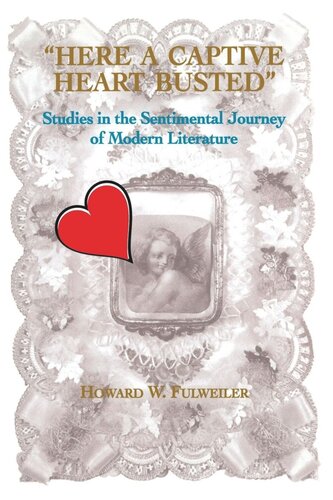

Most ebook files are in PDF format, so you can easily read them using various software such as Foxit Reader or directly on the Google Chrome browser.
Some ebook files are released by publishers in other formats such as .awz, .mobi, .epub, .fb2, etc. You may need to install specific software to read these formats on mobile/PC, such as Calibre.
Please read the tutorial at this link: https://ebookbell.com/faq
We offer FREE conversion to the popular formats you request; however, this may take some time. Therefore, right after payment, please email us, and we will try to provide the service as quickly as possible.
For some exceptional file formats or broken links (if any), please refrain from opening any disputes. Instead, email us first, and we will try to assist within a maximum of 6 hours.
EbookBell Team

4.1
100 reviewsContemporary readers who look at late-eigteenth-century or nineteenth-century imaginative literature must be struch by a phenomenon that is nearly universal in the period: the powerful presence of sentimentality. An often overlooked fact is that "Sentimentality" not only is a critical term, but is limited to a historical period, from roughly 1700 to the present. Fulweiler's hypothesis is that setimentality in writing has played a crucial part in shaping Western consciousness. As a study of evolution of consciousness-rather than the history of ideas- the argument grows out of the work of philosophers such as Ernst Cassirer and Susanne Langer, historical philosophers including R.G. Collingwood, Thomas Kuhn, and Michel Foucault, historically oriented literary critics such as Erich Auerbach, and finally the eclectic writing of Owen Barfield.
Fulweiler's hypothesis is that the general consciousness of Western society has undergone severe shocks as a result of the loss-and sometimes repression- of an older human awareness of what anthropologists have called "participation," a term that may be defined as a non-sensory link between human beings and nature. This loss of participation has become gradually apparant with the erosiion of its visible emblems: The Church (with its supporting Law); the extended family, as visualized in feudal, hierarchical theories of society; and finally the nineteeth-century ideal, the nuclear family, with its sacred location, the home, and its glorified Proprietress, the Woman. Sentimentality emerges, then, as a desperate, if often illegitimate, attempt to regain what has been lost, so that imaginative literature of the nineteenth century, even very good literature, is overwhelmed by domestic sentimentality. In the twentieth century it has been heavily, although covertly, affected by a sexual sentimentality of the previous era.
This sentimental journey is traced by focusing on six major writers: Tennyson and Dickens as the giants of Victorian domestic sentimentality, Hopkins and Hardy as transitional figures in whom the sentimental tropes of the ninteenth century are moving toward the sexual sentimentality of the twentieth, Lawrence and Eliot as representatives, in different ways, of that era. This multi-faceted study will be of considerable interest to specialists across a number of fields including literature, history, psychology, philosophy, and religious studies.